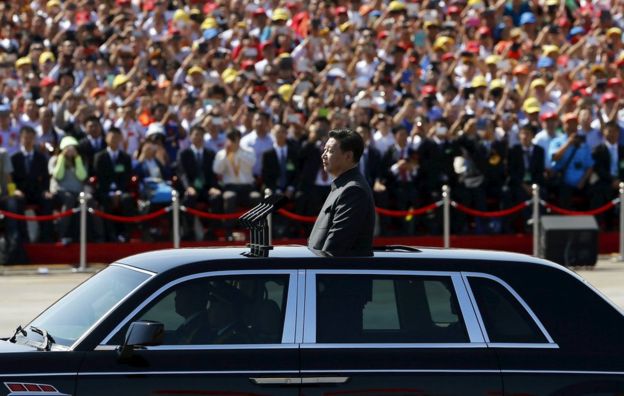In the first episode of a new podcast for Asia Society, Eric Fish gathers experts’ views on Chinese leader Xi Jinping. The commentary covers Xi’s princeling background and early career, his crackdowns on corruption and civil society, his consolidation of personal power, and his apparently considerable public popularity. Among the contributors is The New Yorker’s Evan Osnos, who wrote an in-depth profile of Xi for the magazine in March.
What we’ve discovered over the course of his first two and a half years in office is that he has a much stronger affirmative sense of what it is that he’s trying to accomplish than I think we understood in advance. He has a project. And that project has become all-consuming in China. It’s political, it’s economic, and it’s amazing how much it has crowded out other political actors on the stage.
[…] The hard thing about Xi Jinping as a figure to write about and think about is that you’re very often shaped by the last person you talked to. Because people can make an equally passionate case that he is the most important, bold economic reformer that we’ve had in a generation, and that that ultimately is the most essential fact about it. And then you can talk to somebody else who can make a very compelling case that he has systematically rolled back China’s openness to the world in a way that is fundamentally corrosive to the country that we know today. [Source]
Former Australian prime minister Kevin Rudd describes Xi’s mission as the renewal of China after its pre-Communist “century of humiliation.” Xi himself expressed this at last week’s parade marking Japan’s defeat in World War II, which he described as a key turning point in this renaissance. But Harvard’s Roderick MacFarquhar points to another historical pole star:
I think that Xi Jinping, we’ve seen from the very beginning of his term in office, is obsessed with one historical episode, and it didn’t happen in China: it was the collapse of the Soviet Union and the Soviet Communist Party. And he’s absolutely determined not to be Gorbachev. In my view he’s doing things in China today which could actually be worse than what Gorbachev did in the Soviet Union. [Source]
The view that Xi’s efforts will likely prove counterproductive also came through in China scholar David Shambaugh’s argument that “the endgame of Chinese communist rule has now begun” in March. Others feel that Xi’s bid to avoid the U.S.S.R.’s fate by aggressively departing from the post-Deng tradition of collective leadership could either make or break Party rule. Andrew G. Walder argues that Xi’s strong individual rule could be “the last chance, I think, for the Party to revitalize itself.” But as Susan Shirk responds, the basis for collective leadership was the leadership’s recognition that “unchecked power in the hands of a dictator can take the whole country off a cliff. It’s very dangerous.”
Osnos concludes:
There’s a sense among people who are holding the levers of power in China that he’s changed things so fast and without a real clear sense of where it’s headed. And for that reason it makes them very uncomfortable, because the rules that obtained for the last ten years very clearly no longer do. And they don’t really know where that leads. [Source]








